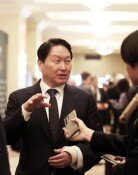Leadership for FTA Ratification
Leadership for FTA Ratification
Posted November. 12, 2010 11:39,
Additional negotiations on the free trade agreement between Korea and the U.S. have failed due to the renewed U.S. demand on beef imports. As a result, the plan to announce a successful conclusion of the deal at the bilateral summit was thwarted Thursday, with negotiations to continue after the G-20 Seoul summit. U.S. President Barack Obama said he ordered trade officials to make efforts for several days or weeks to reach an agreement. Seoul and Washington must exercise leadership to ratify the accord, which has been stuck in limbo since its conclusion in April 2007.
The negotiations broke down after the U.S. demanded that Korea import more U.S. beef at the last moment. Seoul protested by saying that if Washington puts the beef issue on the table, it cannot continue the negotiations. Continuous U.S. pressure on Korea to make concessions on beef and cars will burden Seoul since it cannot ignore the voices of Korean opposition parties and the people. The two countries should wisely deal with the beef issue to reap bigger benefits from the free trade agreement.
Korea suffered big confusion two years ago due to nationwide protests over fears of mad cow disease after Seoul agreed to resume U.S. beef imports. Though fears over the disease were found to be groundless, the resumption of U.S. beef imports remains a sensitive issue to the Korean livestock industry. For its part, Washington must consider livestock businesses that wield strong political influence and lawmakers who represent regions of the Korean livestock sector. Expanding U.S. imports to beef from cows older than 30 months, however, will not generate practical benefits since the demand for such beef is not high. If the two countries take a flexible attitude, the beef issue can be resolved.
The two leaders need to do everything to persuade their parliaments to get the deal ratified early and implement it. President Lee Myung-bak will find it easy to persuade the main opposition Democratic Party, which opposed the agreement since it was concluded when the ruling Grand National Party took power. Korean opposition parties must recognize that a further delay will make the country lose the upper hand to trade rivals, greatly reducing the pacts benefits. China in 2004 overtook the U.S. as Koreas largest export market, so Korea needs the accord to reduce its excessive dependence on China.
In the U.S., the Democratic Party, which has unions as a key support base, opposes congressional ratification of the agreement. With the victory of the Republican Party in the mid-term elections, however, a favorable atmosphere for the accord has resurfaced given Republican support for the deal. The New York Times urged in a Nov. 8 editorial titled South Korea is a Start that Obama take strong measures to get the deal through Congress, saying, The global economy needs a strong champion of free trade. The two countries must not lose this golden opportunity.







